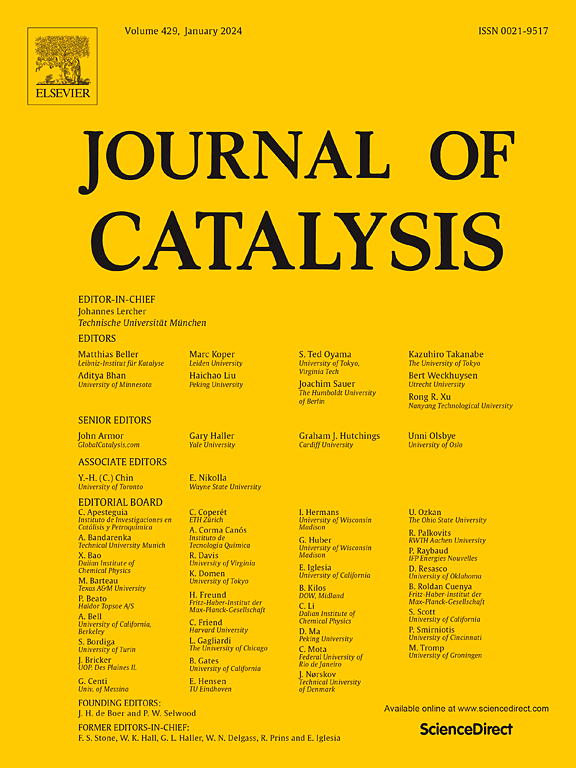Examining generalizability of AI models for catalysis
IF 6.5
1区 化学
Q2 CHEMISTRY, PHYSICAL
引用次数: 0
Abstract
In this work, we investigate the generalizability of problem-specific machine-learning models for catalysis across different datasets and adsorbates, and examine the potential of unified models as pre-screening tools for density functional theory calculations. We develop graph neural network models for 12 different datasets for catalysis and then cross-evaluate their performance. Unified models include ALIGNN-FF, MATGL, CHGNet, and MACE. Pearson correlation coefficient analysis indicates that generalizability improves when similar adsorbates are used for training and testing or when a larger database is employed for training. Results demonstrate that while the accuracy of the unified models has room for improvement, their excellent performance in predicting the trend of adsorption energies can be a valuable pre-screening tool for selecting potential candidates prior to resource-intensive DFT calculations in catalyst design, thereby reducing computational expenses. The tools used in this work will be made available at: https://github.com/usnistgov/catalysismat.


检验人工智能催化模型的通用性
在这项工作中,我们研究了针对不同数据集和吸附物的催化问题的特定机器学习模型的泛化性,并研究了统一模型作为密度泛函理论计算的预筛选工具的潜力。我们为12种不同的催化数据集开发了图神经网络模型,然后交叉评估它们的性能。统一型号包括align - ff、MATGL、CHGNet和MACE。皮尔逊相关系数分析表明,当使用类似的吸附剂进行训练和测试或使用更大的数据库进行训练时,通用性得到提高。结果表明,虽然统一模型的准确性仍有提高的空间,但其在预测吸附能趋势方面的优异性能可以成为在催化剂设计中进行资源密集型DFT计算之前选择潜在候选物的有价值的预筛选工具,从而减少计算费用。这项工作中使用的工具将在:https://github.com/usnistgov/catalysismat上提供。
本文章由计算机程序翻译,如有差异,请以英文原文为准。
求助全文
约1分钟内获得全文
求助全文
来源期刊

Journal of Catalysis
工程技术-工程:化工
CiteScore
12.30
自引率
5.50%
发文量
447
审稿时长
31 days
期刊介绍:
The Journal of Catalysis publishes scholarly articles on both heterogeneous and homogeneous catalysis, covering a wide range of chemical transformations. These include various types of catalysis, such as those mediated by photons, plasmons, and electrons. The focus of the studies is to understand the relationship between catalytic function and the underlying chemical properties of surfaces and metal complexes.
The articles in the journal offer innovative concepts and explore the synthesis and kinetics of inorganic solids and homogeneous complexes. Furthermore, they discuss spectroscopic techniques for characterizing catalysts, investigate the interaction of probes and reacting species with catalysts, and employ theoretical methods.
The research presented in the journal should have direct relevance to the field of catalytic processes, addressing either fundamental aspects or applications of catalysis.
 求助内容:
求助内容: 应助结果提醒方式:
应助结果提醒方式:


